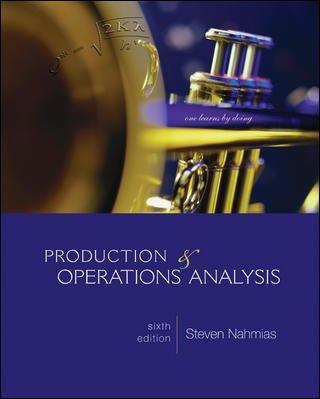Question
Which of the following forms of organizations is the easiest to form? A) sole proprietorships B) limited liability corporation C) limited partnership D) corporations ______
Which of the following forms of organizations is the easiest to form?
A) sole proprietorships
B) limited liability corporation
C) limited partnership
D) corporations
______ 20. Which of the following is a strength of a corporation?
A) low taxes
B) limited liability
C) low organization costs
D) less government regulation
______ 21. An effective ethics program ________.
A) can weaken corporate value
B) has no effect on a corporation's value
C) can enhance a corporation's value
D) will result in high employee attrition rate
______ 22. In a corporation, the Board of Directors are elected by the ________.
A) chief executive officer
B) creditors
C) stockholders
D) employees
______ 23. Which of the following assists companies in raising capital, advises firms on major transactions such as mergers or financial restructuring, and engages
in trading and market making activities?
A) investment banks
B) securities exchanges
C) mutual funds
D) commercial banks
______ 24. The ________ market is where securities are initially issued and the ________ market is where pre-owned securities (not new issues) are traded.
A) primary; secondary
B) money; capital
C) secondary; primary
D) primary; money
______ 25. The federal regulatory body governing the sale and listing of securities is called the ____________________________.
A) IRS
B) FASB
C) GAAP
D) SEC
______ 26. The stockholders' annual report must include ________.
A) common-size financial statements
B) an income statement
C) an advance tax statement
D) the margin of safety report
______ 27. The 2002 law that established the Public Company Accounting Oversight Board (PCAOB) was called ________.
A) the McCain-Feingold Act
B) the Harkins-Oxley Act
C) the Sarbanes-Harkins Act
D) the Sarbanes-Oxley Act
______ 28. Operating profit is known as ________.
A) earnings after interest and taxes
B) earnings before interest and taxes
C) earnings before depreciation and taxes
D) earnings after tax
______ 29. Which of the following is a current liability?
A) accounts receivable
B) cash
C) notes payable
D) inventory
______ 30. When preparing the retained earnings statement, ________ is(are) subtracted in order to derive at the ending balance of retained earnings.
A) net profits after taxes
B) interest expense
C) depreciation
D) dividends
______ 31. The ________ ratios are primarily used as measures of return.
A) liquidity
B) activity
C) debt
D) profitability
______ 32. The ________ of a business firm is measured by its ability to satisfy its short-term obligations as they come due.
A) activity
B) liquidity
C) debt
D) profitability
______ 33. ________ ratios are a measure of the speed with which various accounts are converted into sales or cash.
A) Activity
B) Liquidity
C) Debt
D) Profitability
______ 34. ________ is a statistical measure of the relationship between any two series of numbers.
A) Coefficient of variation
B) Standard deviation
C) Correlation
D) Probability
______ 35. The correlation of returns between Asset A and Asset B can be characterized as ________. (See table above).
A) perfectly positively correlated
B) perfectly negatively correlated
C) uncorrelated
D) partially correlated
______ 36. If you were to create a portfolio designed to reduce risk by investing equal proportions in each of two different assets, which portfolio would you recommend? (See Table above).
A) Assets A and B
B) Assets A and C
C) none of the available combinations
D) cannot be determined
Step by Step Solution
There are 3 Steps involved in it
Step: 1

Get Instant Access to Expert-Tailored Solutions
See step-by-step solutions with expert insights and AI powered tools for academic success
Step: 2

Step: 3

Ace Your Homework with AI
Get the answers you need in no time with our AI-driven, step-by-step assistance
Get Started


